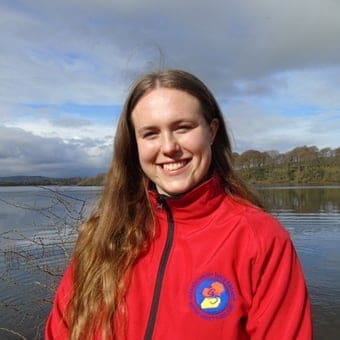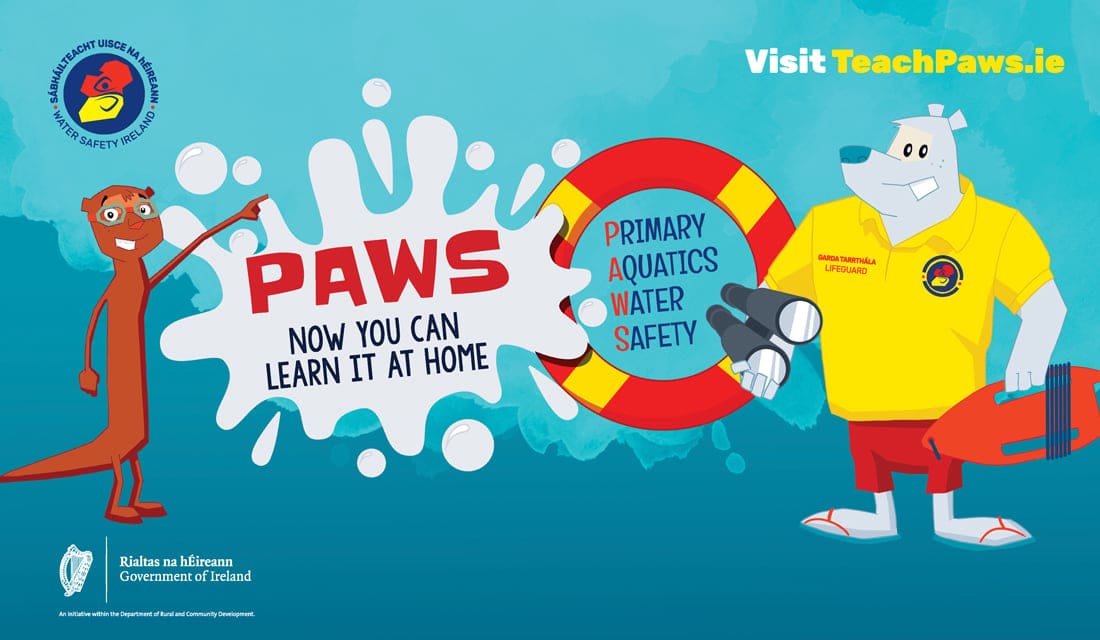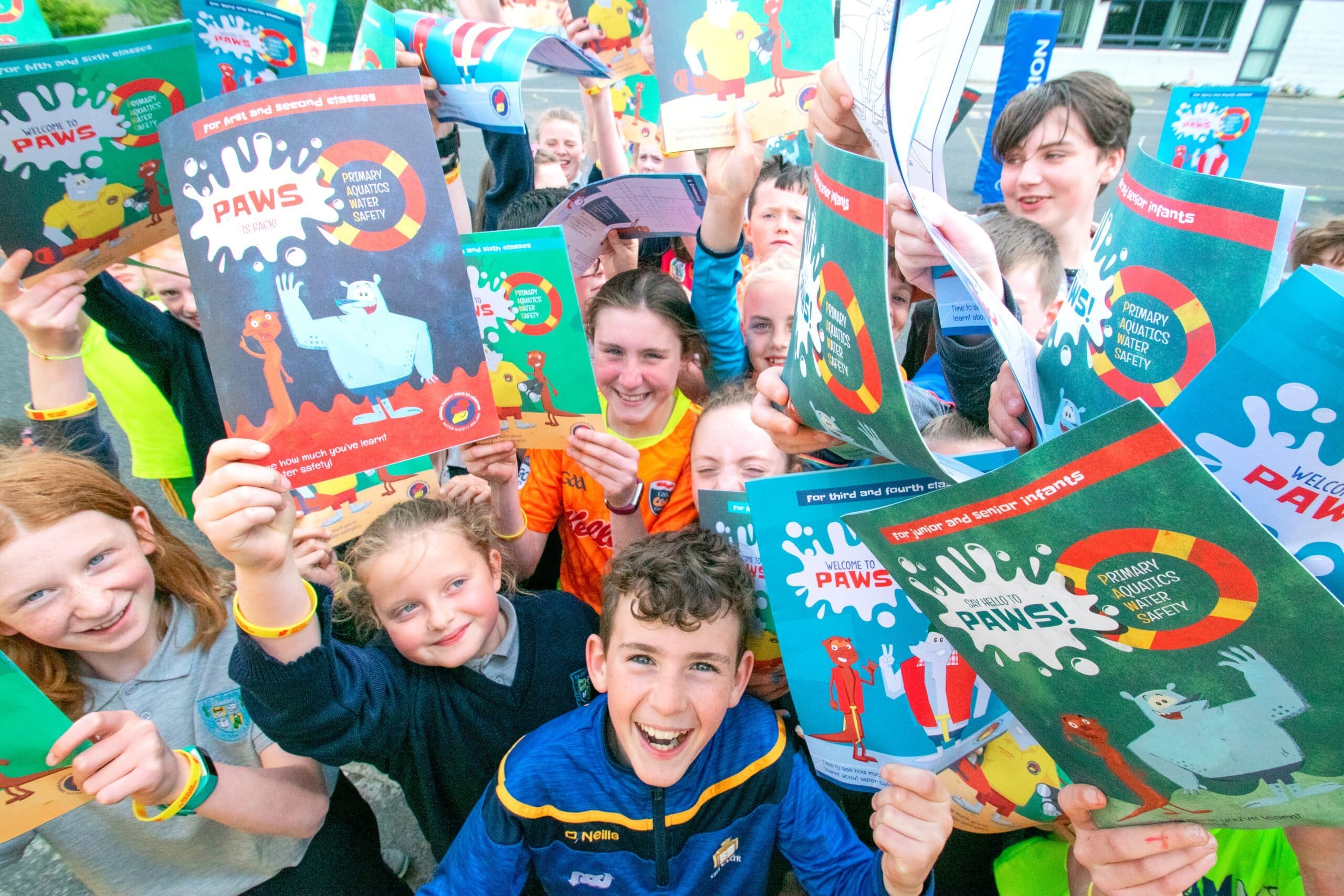
Q1 – You have been volunteering with Water Safety Ireland – Clare for several years now and congratulations on recently receiving an award for 10 years of service with the organisation. What inspired you to volunteer with WSI?
Thanks. I can’t believe it’s been over 10 years!
I’ve always loved water. I swam competitively from a young age and would often spend the summers in Whitestrand, Miltown Malbay where I competed in surf lifesaving. Water Safety Ireland – Clare is an incredible community to be part of and it was almost like a natural progression to get more involved in instructing and teaching at water safety weeks around Clare. And actually, one of my first jobs was as an Assistant Swim Teacher in the pool on weekends and I really enjoyed it. I loved teaching.
I loved seeing the joy kids got out of being in the water and I knew it was something I wanted to pursue. I continued with WSI and became a water safety Instructor and Swim Teacher, Pool Lifeguard, Beach Lifeguard and now I’m working full-time in the organisation as the Education Development Executive, getting the chance to work directly with the programmes and courses I know have such a positive impact.
Q2 – What do you most enjoy about volunteering with Water Safety Ireland?
I’ve always loved open-water swimming and spend a lot of time by and in the ocean. And obviously that comes with the need to have understanding and healthy respect for the ocean. So, I feel really passionate about water safety education – I think we’re so lucky with the stunning coastline, rivers and lakes that we have in Ireland, and I love to see people enjoying those waterways, especially when they have the right skills, behaviours and attitudes to enjoy them safely.
I also really enjoy being an Instructor for Water Safety Ireland. Being able to go out to the beaches in the summertime, and deliver water safety education to kids, to adults, to anyone that will listen! When I first started water safety instructing, I volunteered as part of the An Taisce, Green Schools programme where alongside Clare County Council, we visited schools or hosted workshops on local beaches for schools to attend, delivering the PAWS programme, all throughout Clare.

Q3 – What do you most enjoy about volunteering with Water Safety Ireland?
I’ve always loved open-water swimming and spend a lot of time by and in the ocean. And obviously that comes with the need to have understanding and healthy respect for the ocean. So, I feel really passionate about water safety education – I think we’re so lucky with the stunning coastline, rivers and lakes that we have in Ireland, and I love to see people enjoying those waterways, especially when they have the right skills, behaviours and attitudes to enjoy them safely.
I also really enjoy being an Instructor for Water Safety Ireland. Being able to go out to the beaches in the summertime, and deliver water safety education to kids, to adults, to anyone that will listen! When I first started water safety instructing, I volunteered as part of the An Taisce, Green Schools programme where alongside Clare County Council, we visited schools or hosted workshops on local beaches for schools to attend, delivering the PAWS programme, all throughout Clare.
“Always hold an adults hand near water.”
Two years ago, we redeveloped the Hold Hands pack to further the learning. So, alongside every storyboard, we have coinciding activities that teachers can engage with their class. We’ve included water safety related activities that encourage messy play, roleplay, storytelling and even have a suggested reading list for classrooms that discuss water safety and safe swimming behaviours. That programme can be found at www.holdhands.ie.
Our PAWS programme, aimed at primary school kids, has two strands, Land PAWS is our classroom-based programme and PAWS in the Pool is our aquatics programme. Both of these programmes are fully certified, and funnily enough I still have my own PAWS certificate from when I completed the programme back in 2004!
The PAWS programme aims to outline safe behaviours and key water safety messages for all aquatic environments. There are four levels of PAWS that progressively become more comprehensive as the student advances. They get to learn about being safe at home, on the farm, at the beach, at inland waterways.
They also learn self-rescue skills and how to respond in a water-based emergency. We also offer school visits through the PAWS programme and that gives us the opportunity to bring a ringbuoy to the school and teach the kids non-contact rescue techniques, how to correctly throw a ringbuoy, how to call for help. it’s always very motivating to see how engaged the students are and hopefully, it sparks a passion in water safety that they choose to pursue when they get older. Again, the PAWS programme is available online and can be found at www.teachpaws.ie
We also have our WISE secondary school programme. Teach WISE is aimed directly at TYs and is fully accessible online at www.teachwise.ie. The programme itself, follows a series of eight lessons that provide a comprehensive introduction into water safety through risk assessment, water safety strategies and non-contact rescue techniques.
All the lessons are broken into two sections. Insights which give information and advice about a specific topic and Application: which encourages class discussion following videos and story-based scenarios where the students are given an opportunity to apply the Insights that they have learned. When the students complete the programme, they engage in a group project. They are encouraged to identify an environment or specific hazard in their community and apply the safety messaging that they have learned, to create a social media campaign, so it’s a nice way to tie up the programme and allow the students to put what they have learned into practice!

Q4 – What new initiatives are on the cards for Water Safety Ireland’s education programmes in 2024 and what you are most excited to work on?
We have a very exciting year ahead at Water Safety Ireland with lots of new projects, initiatives, and campaigns. One of the initiatives I’m most excited to work on is our new land-based programme on the Junior Cert cycle P.E curriculum called Get WISE. This programme was developed alongside Oide, the support service for teachers and school leaders, and aligns with Learning Outcome 2.9, demonstrate an understanding of personal survival and water safety considerations. I’m really excited to see the engagement with the programme as it begins to roll out.
Another project that I’m really focusing on promoting more is our “edutainment” (education/entertainment) game, Aqua Dash. It’s an endless-runner game that sits as a component to our PAWS programme, where students navigate an inland or coastal environment, avoid the obstacles, and engage in safe behaviours such as only entering the water when they identify lifeguard flags, recognising and responding to signage etc. The game was developed as a fun way for students to really “put into practice” what they’ve learned in the PAWS programme about being safe in aquatic environments. I really hope to further expand this game to include more scenarios and environments in the future!
Q5 – As part of a global World Conference on Drowning Prevention, you recently visited Australia to collaborate and share information with water safety stakeholders from other countries. Tell us a little bit about the experience.
The conference itself was absolutely incredible. It was really inspiring to meet my peers from all over the world and I learned so much! I found it incredibly motivating to see the potential of what can be done with water safety education, and I was very excited to bring what I learned home to see how we could put what I had learned into an Irish context. Meeting my peers and discussing other water safety education initiatives that were being developed and delivered in other countries. Seeing what could be done and the potential for it. And the parameters of reach that we could extend these programs to. I cannot wait for the next one!
Q6 – What were the key water safety learnings you took away from it which could be applied in an Irish context?
Honestly, there was so many, I’m having a hard time choosing just one to talk about. There’s just so many ways to teach and learn about water safety education. It doesn’t have to be in a
classroom with the screen up in front and the teacher delivering a presentation, it can be in lots of different ways, through swimming programs, through apps. Getting to see the capabilities of emerging technology around drowning prevention, seeing how different countries modified their approach to reflect their culture, their environment. It was brilliant.
